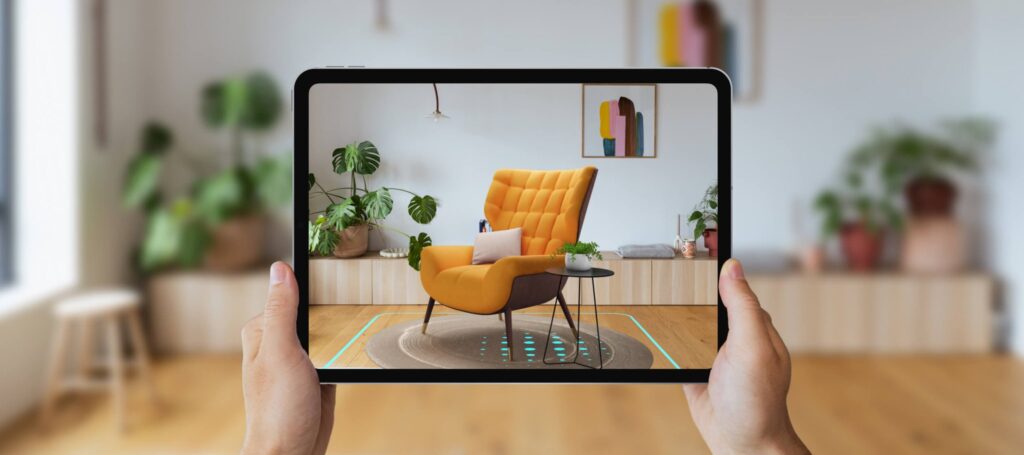eCommerce platforms are convenient because they save shoppers the trouble of physical travel and the endless efforts of tireless salespeople doing the utmost to convince them their products are either what they want or better than what others have to offer.
Apart from the cost of delivery, the price of this convenience is often receiving items that differ — sometimes greatly — from what was ordered, hence the many ‘What I ordered vs. What I got’ stories that make the rounds on social media.
But physical shopping is not always a bad experience once you settle on a vendor because you can get a feel of the product you want to buy and even haggle until you pay what you consider a fair price.
Interestingly, Danjuma Mohammed has built a solution called VerveAR that gives some of this experience on an eCommerce platform. While you can’t haggle with a vendor online, VerveAR allows you to see what that shoe or that handbag will look like in the real world.
Mohammed realised the need for visualising eCommerce products during his dropshipping stint. He noticed people returned a lot of the items he sold because they couldn’t get an idea of what it’d look like.
However, the most interesting part about VerveAR is the business itself and how it makes money.
What is VerveAR and how does it work?

VerveAR is a tool that helps online shoppers experience products in the real-world before buying. Instead of relying on static images, customers can use their phone cameras to place virtual sneakers on their feet, check how a sofa fits in their living room, or even try on glasses, all from an online store.
This reduces guesswork and makes shopping more interactive.
“A lot of returns happen because people don’t know exactly what they’re getting,” says Mohammed. “With VerveAR, they can see the product in their space first, which builds confidence and reduces returns.”
During a short demo, Mohammed gives an insight into how VerveAR works. Through his phone, he sees how a pair of shoes would look on him and how gym equipment would fit in his apartment.
His journey to founding VerveAR started in 2019 when he ran an online dropshipping business. He sold everything from skiing gear to camping equipment, shipping products directly from suppliers to customers. The problem? Returns were eating into his profits.
“I was selling from Canada, but my suppliers were in China, so I never physically saw the products,” he explains. “Customers would receive items that didn’t match their expectations, and they’d return them. I was losing money on chargebacks and refunds. At one point, my return rate was as high as 40%.”
He believes customers weren’t returning items because they didn’t want them; they just couldn’t accurately visualise what they were buying. That’s when he started thinking about augmented reality (AR).
Augmented reality (AR) is a technology that overlays digital images, objects, or information onto the real world through a smartphone, tablet, or AR headset.
Unlike virtual reality (VR), which immerses users in a completely digital environment, AR enhances what you see in real life by adding interactive computer-generated elements.
For example, if you’re shopping for a new sofa online, AR allows you to place a 3D version of the sofa in your living room using your phone camera, helping you see how it fits before you buy it.
Using AR for shopping sounds futuristic but it’s been around for sometime. In 2019, Nike started Nike Fit to help people find the perfect shoe size. Companies like IKEA have and even Keya’s BlackRhino VR, have also experimented with it.
What Mohammed is trying to do is to make it easy for smaller eCommerce platforms to embed AR into their platform. Businesses start by uploading their product details, including images, dimensions, and descriptions. This can be done manually or by importing a CSV file from their existing eCommerce store.
“If you already sell online, you don’t need to take new pictures. Just export your product data and upload it to VerveAR,” says Mohammed.
Once the product data is in VerveAR, the system uses machine learning, object recognition, and 3D rendering to generate a high-quality AR model of each item. The software automatically recognises product categories, ensuring a pair of sneakers, for example, is correctly placed on feet while a piece of furniture is anchored to the floor.
“We’ve trained our AI to understand how products should appear in real-world environments. It knows that a coffee table should sit on the floor and a pair of glasses should rest on your face, not float mid-air.”
After the AR model is generated, businesses can publish it directly to their website with a simple embed. Customers visiting the site will see an option to “View in AR,” which activates their phone camera and projects the product into their space.
VerveAR’s traction
VerveAR launched in March 2023 and officially rolled out its platform in January 2024. Since then, it has gained some traction, generating $558,000 in revenue in 2024 alone.
The startup primarily targets businesses in North America and Europe, where eCommerce adoption is high and retailers are more open to innovative shopping experiences.
“We tested in Africa, especially Nigeria, but the market just isn’t ready yet,” Mohammed admits. “Most people still prefer to walk into a store and inspect products in person.”
VerveAR is bootstrapped, relying mainly on grants and recently secured investment from the DMZ accelerator in Canada. Without disclosing the investment amount, he confirms that he no longer owns 100% of the company.
“DMZ invested in the product, and they believe in what we’re building.”
Despite its success, VerveAR faces significant hurdles. Customer acquisition remains the biggest challenge, as businesses are sceptical about whether AR will boost their bottom line.
“Customers love it, but for businesses, it’s always about ROI,” Mohammed reveals. “We address that by offering a free trial where they can test AR on one product and track engagement. That usually convinces them.”
Then there’s the technical challenge; not all devices support AR, and slow Internet speeds can lead to a clunky experience. We’re constantly optimising for different devices, but hardware limitations are out of our control.”
Competition is another factor. Tech giants like Apple, Google, and Shopify are investing in AR commerce, and VerveAR will have to differentiate itself. “What makes us unique is our ability to support a wide range of product categories. Some competitors focus only on fashion or furniture, but we do it all.”
VerveAR mimics a physical experience to shopping, but while traction grows and more devices will hopefully have AR capabilities, the startup risks becoming just another feature on giant eCommerce platforms.
Mohammed shares that getting acquired by a big player is something the company is considering down the line, but for now, the focus is on “being a major catalyst in the adoption of AR & Try-On shopping not just in North America but globally.”











